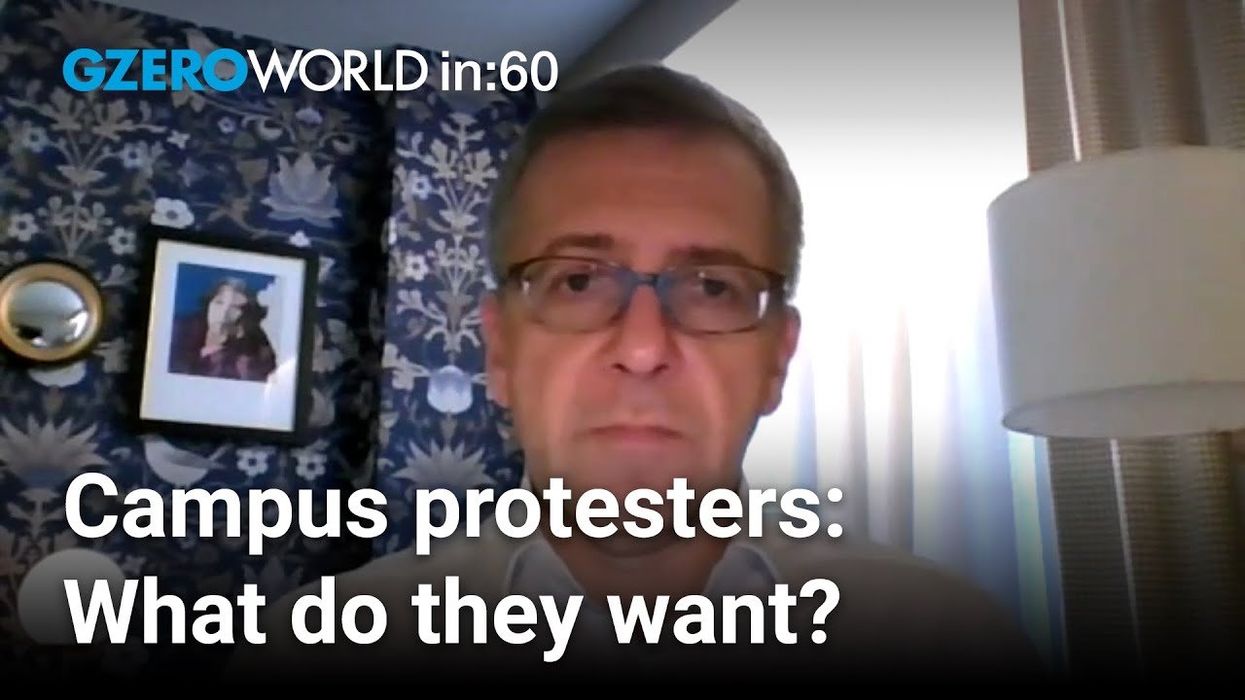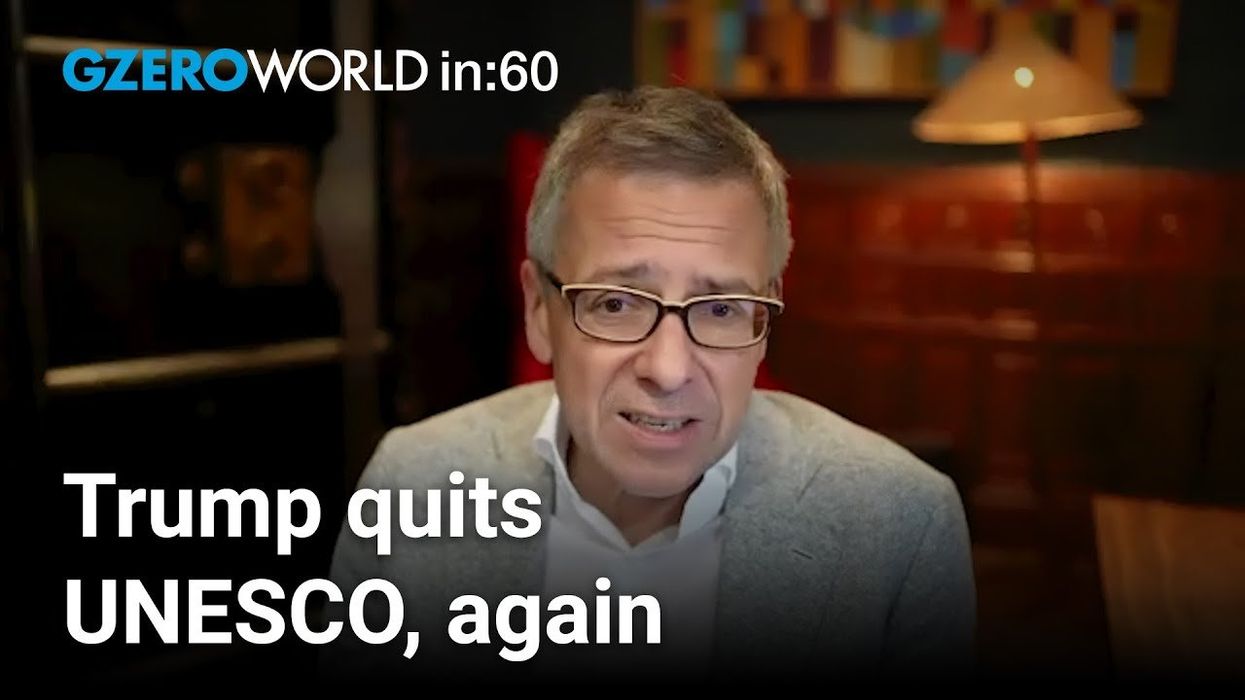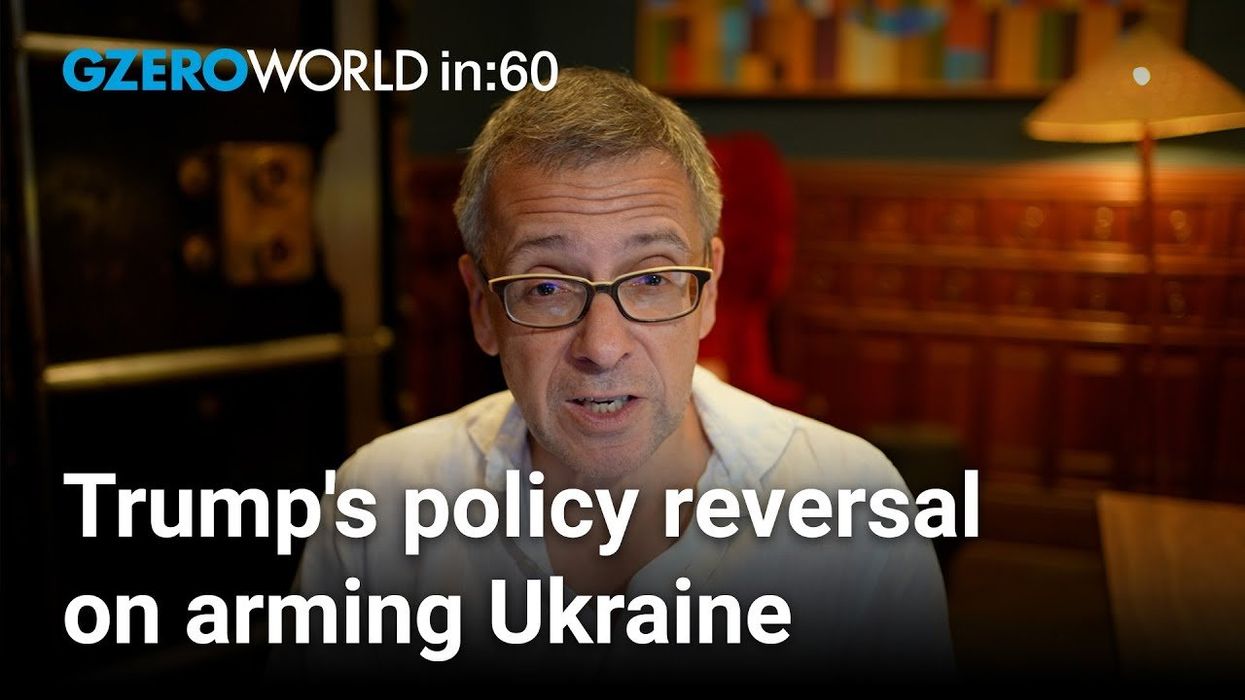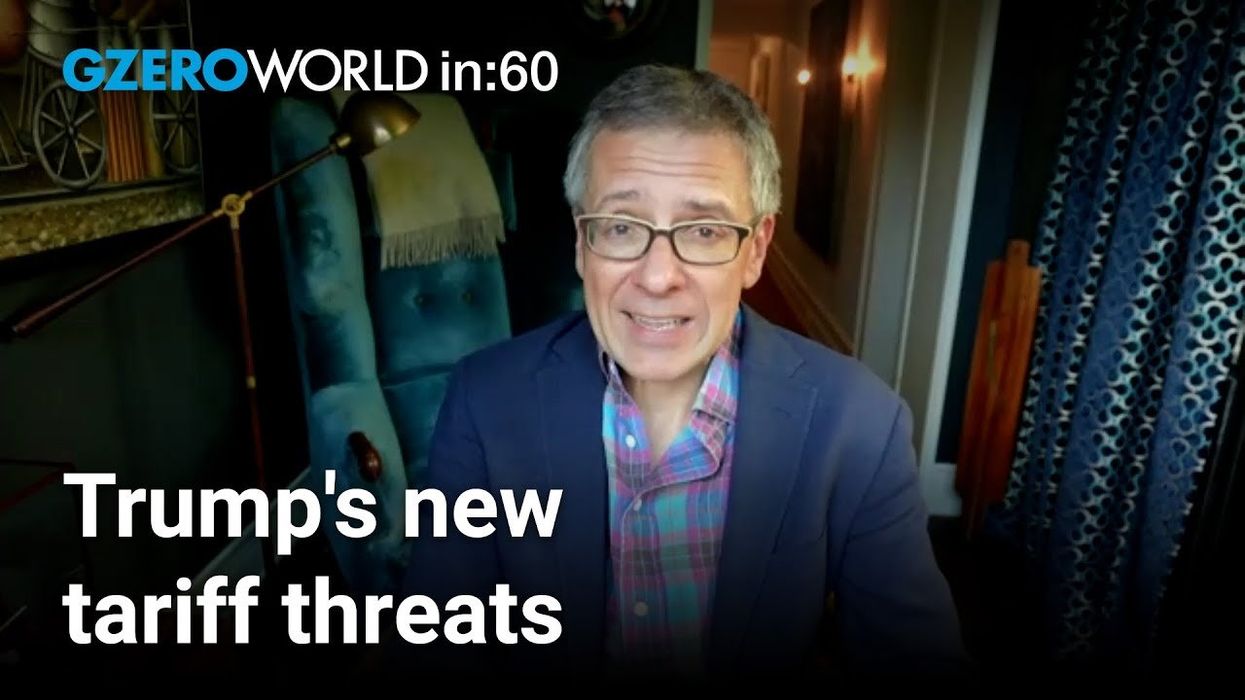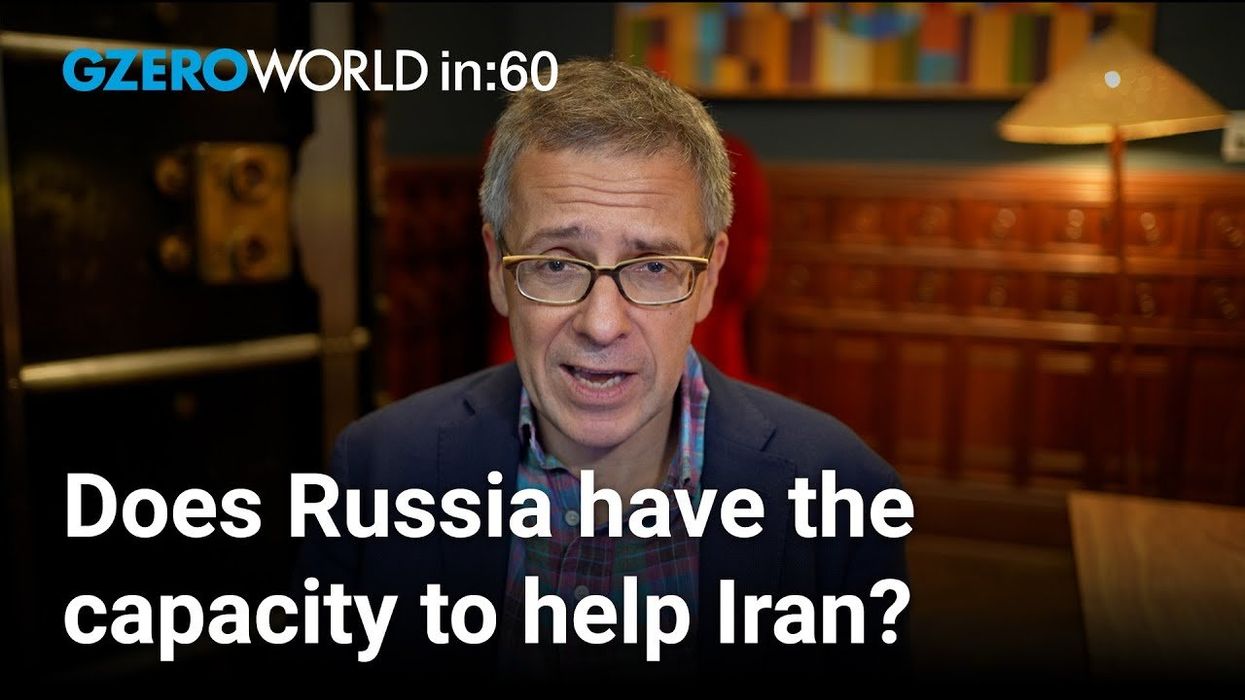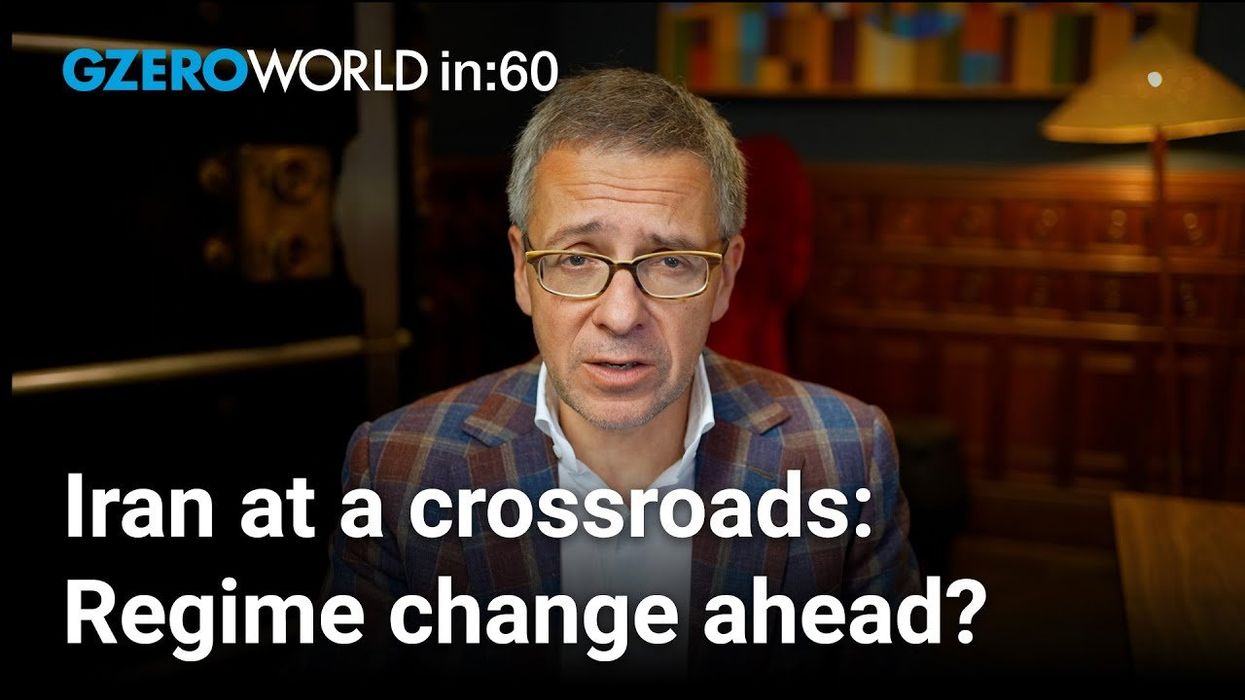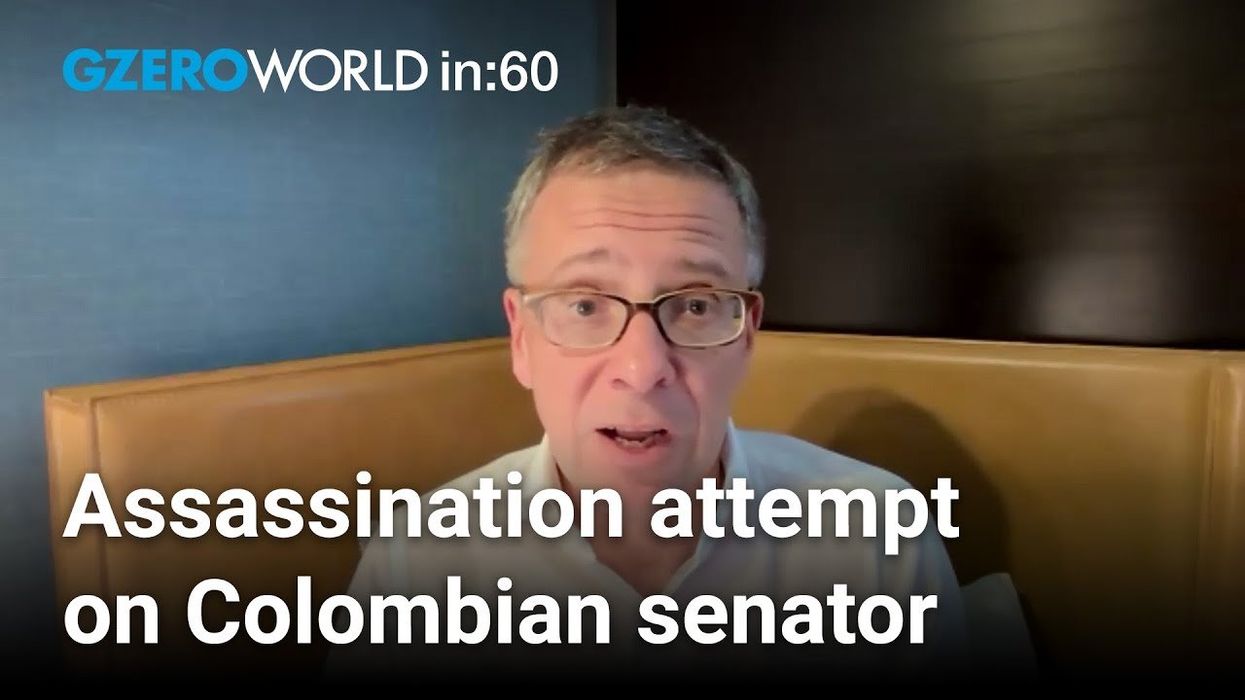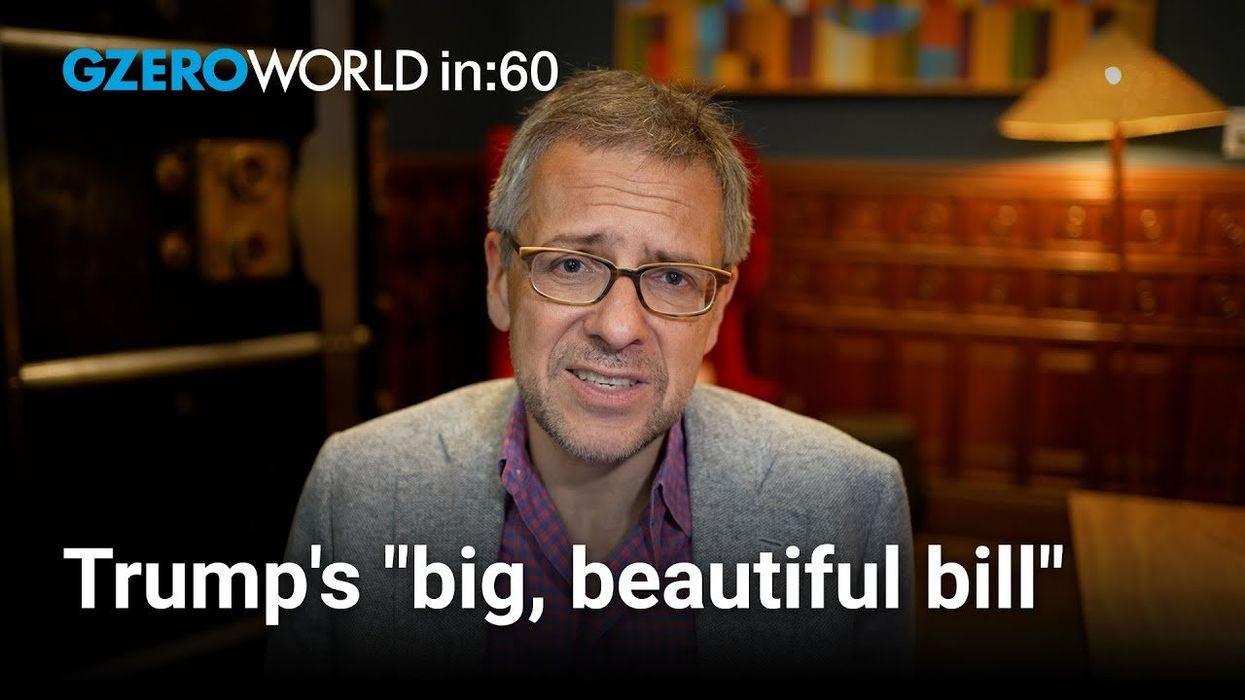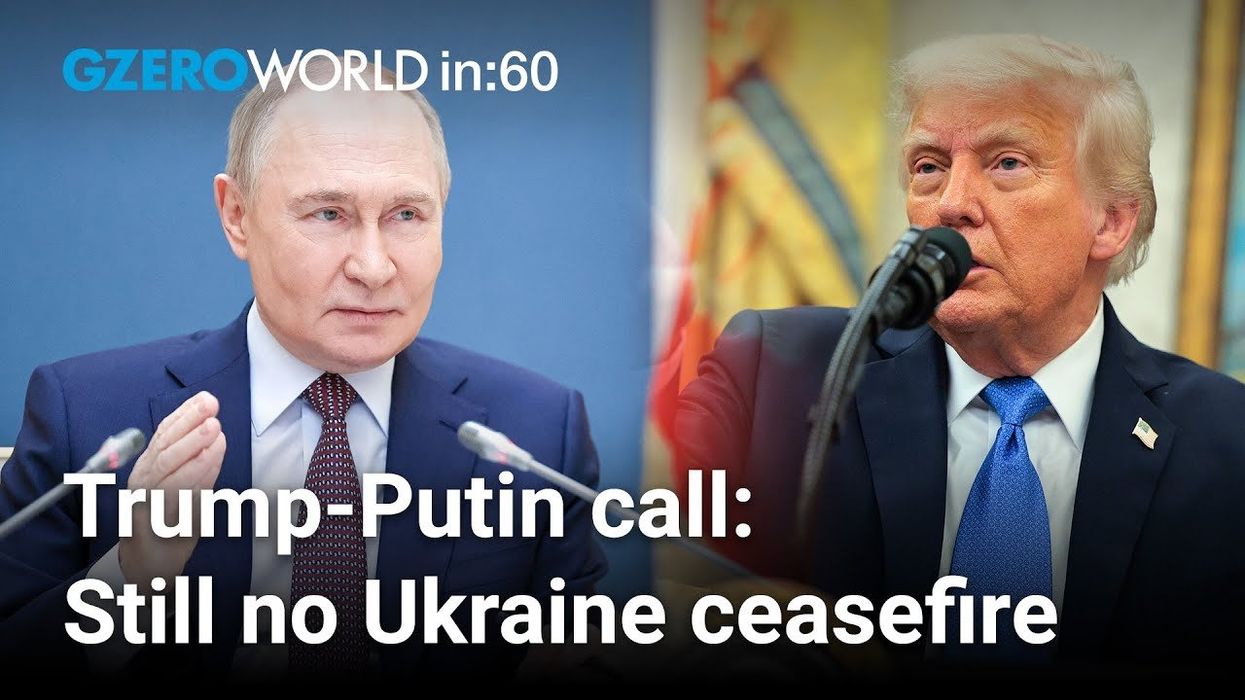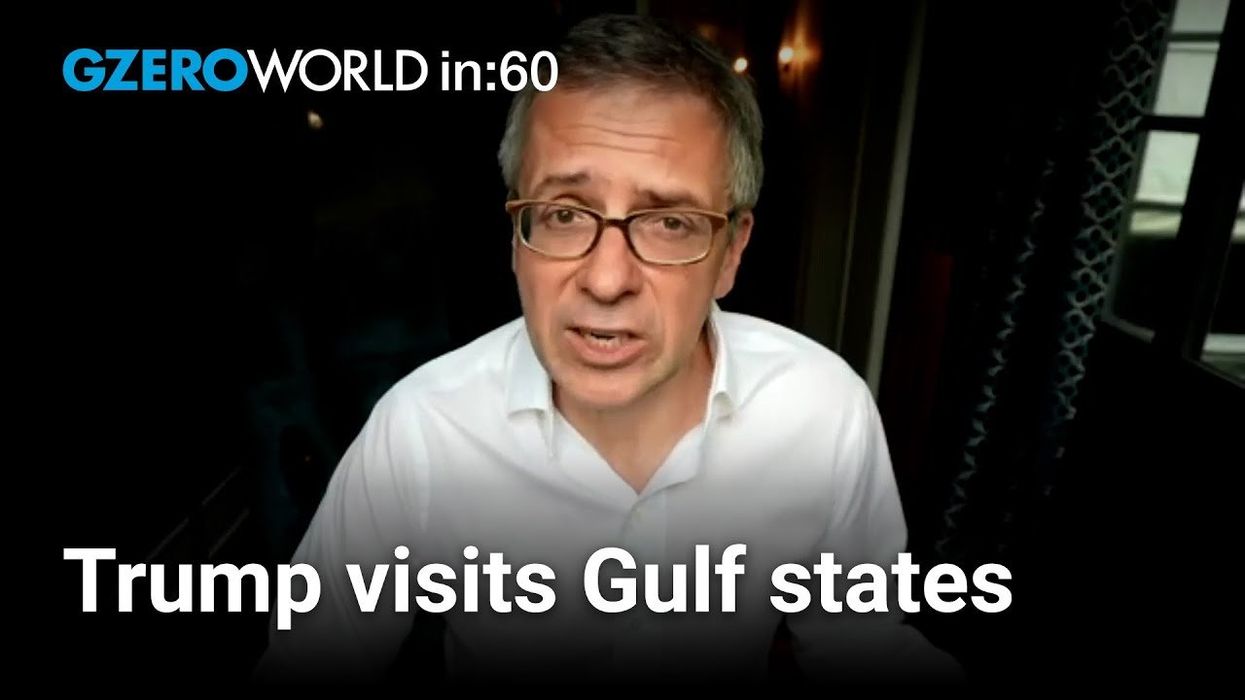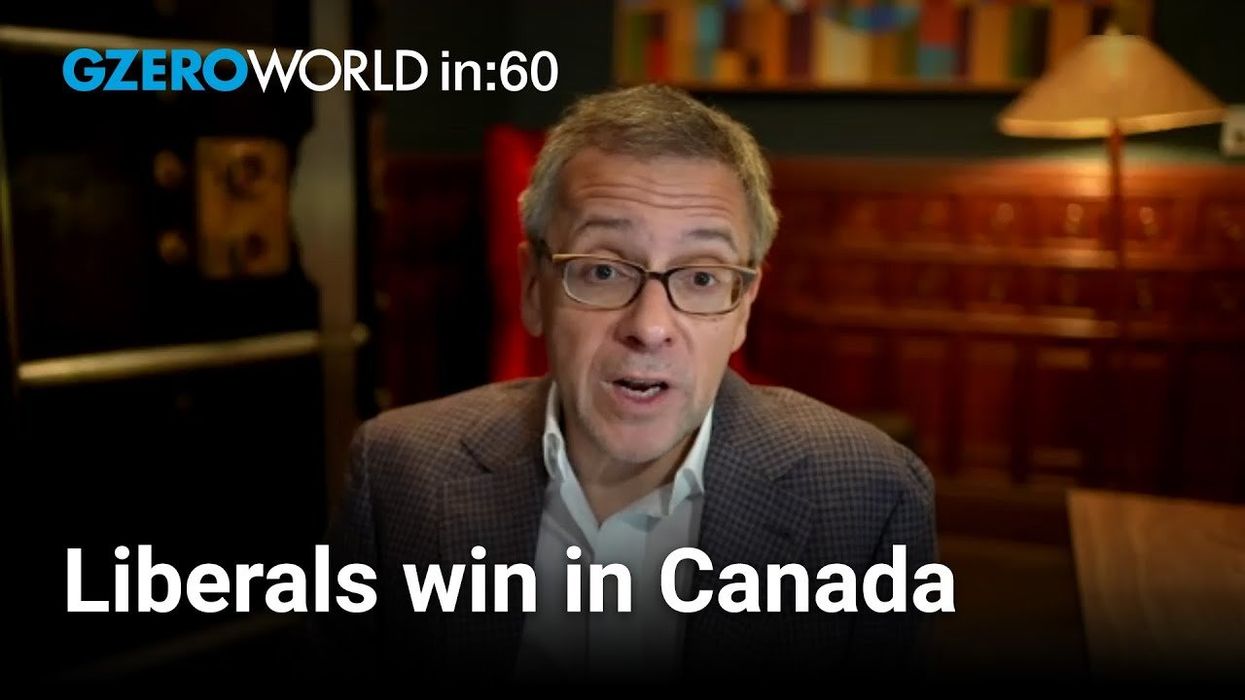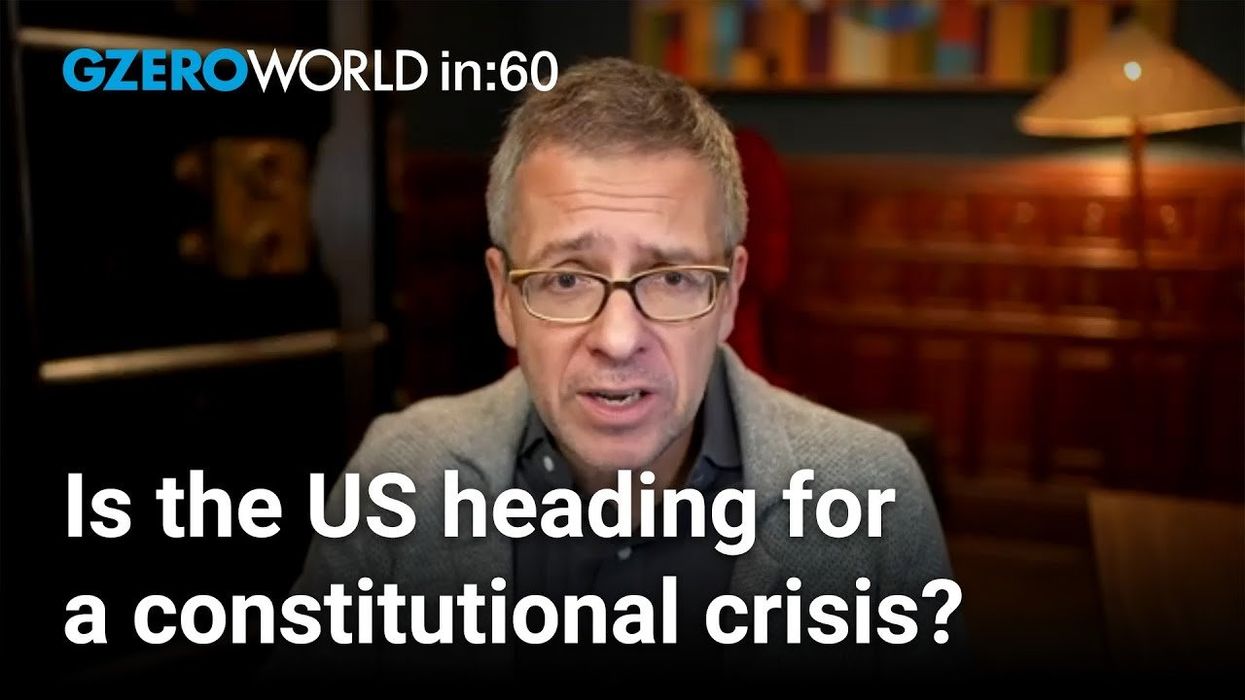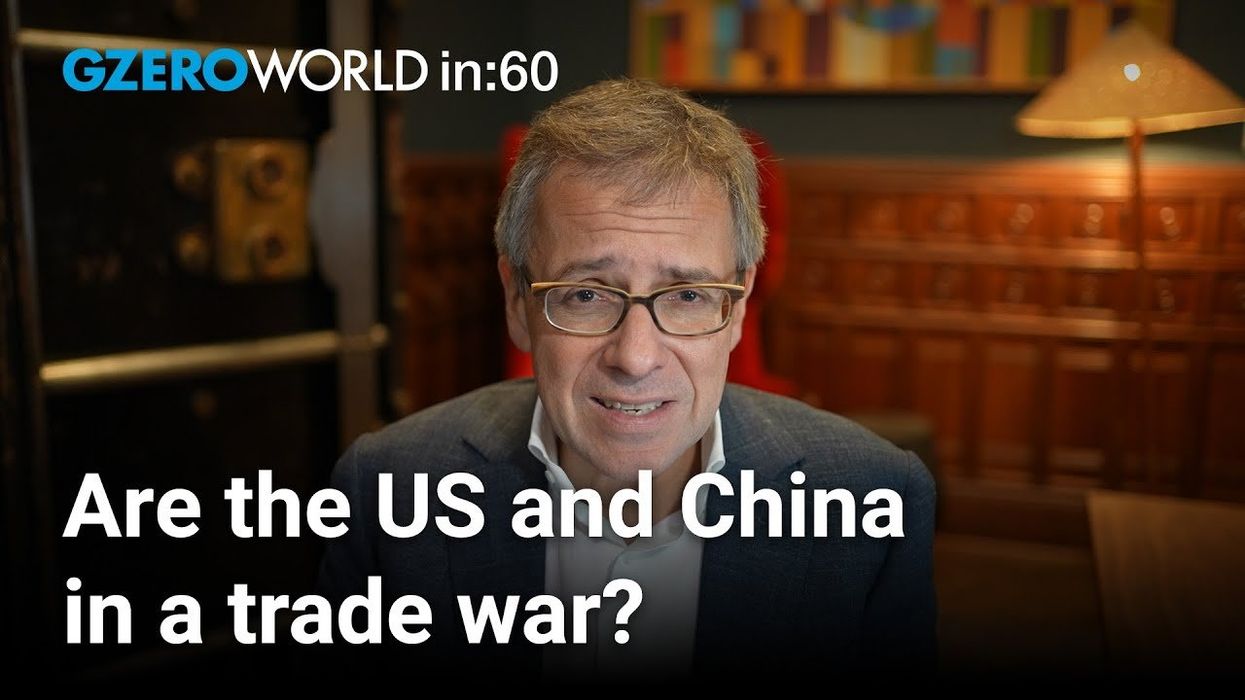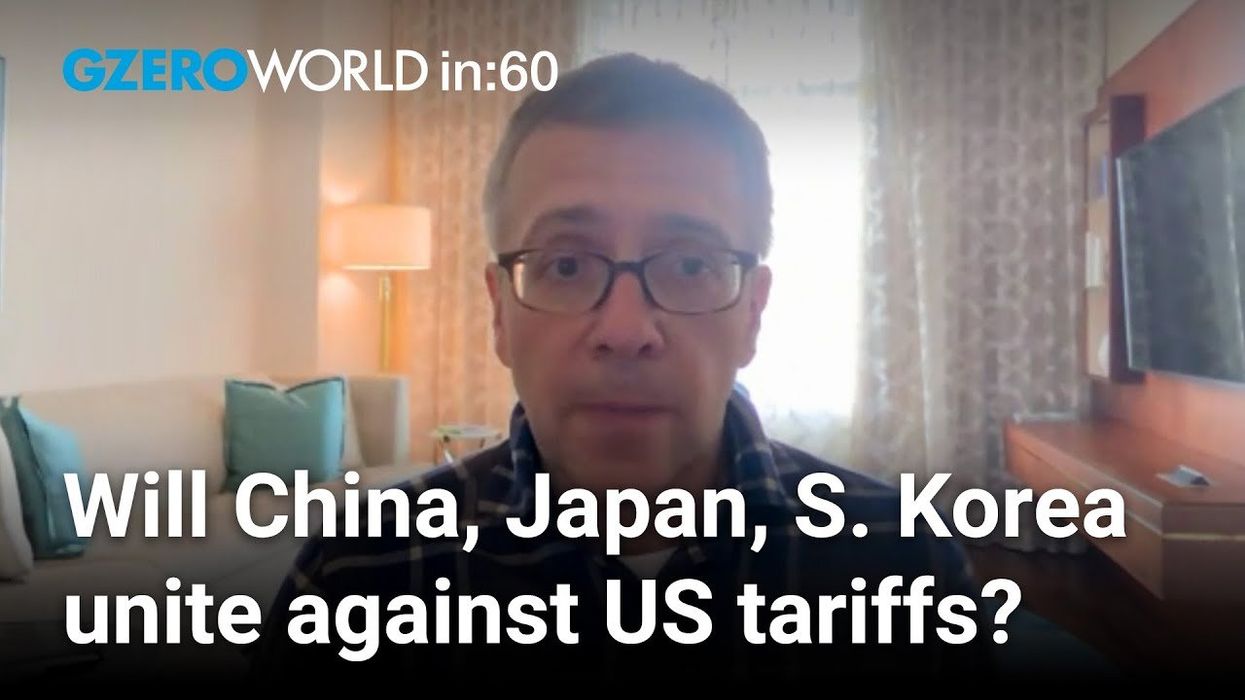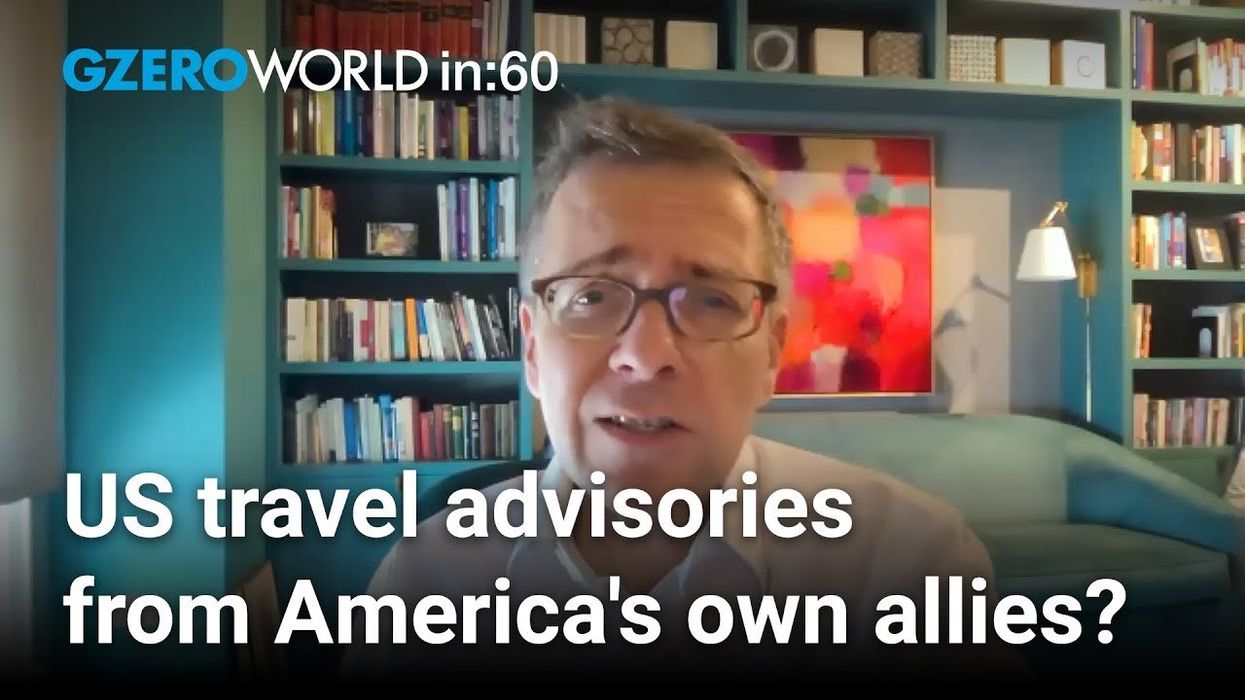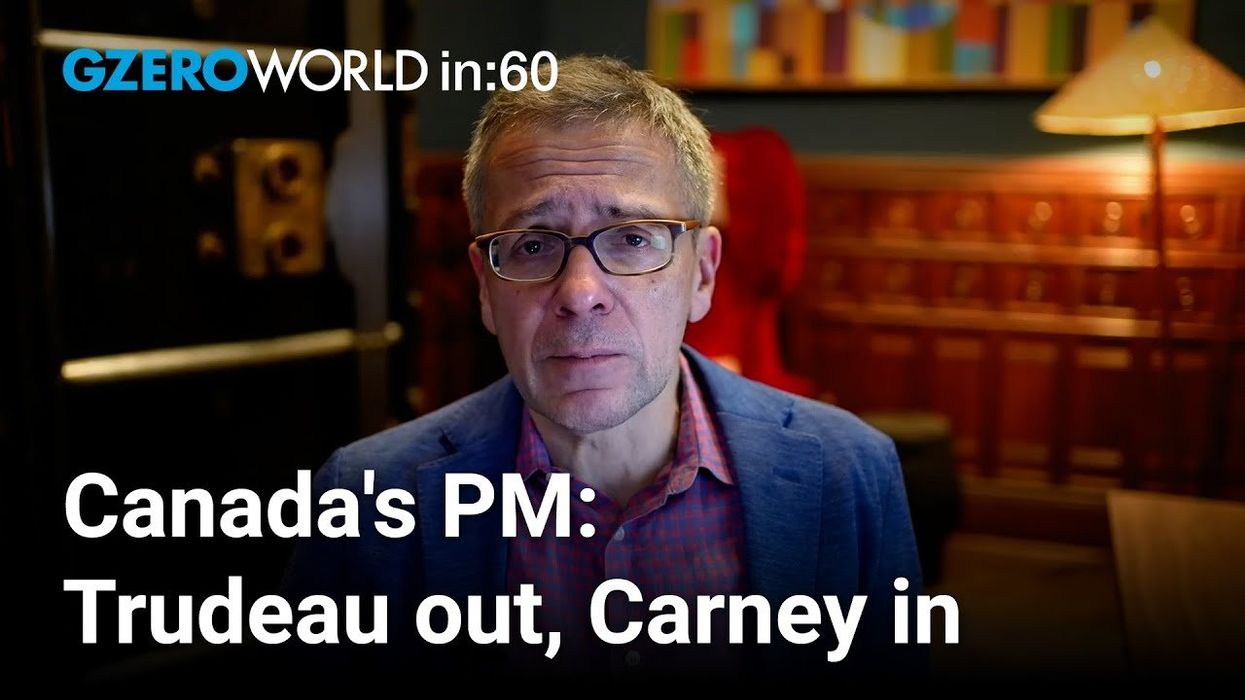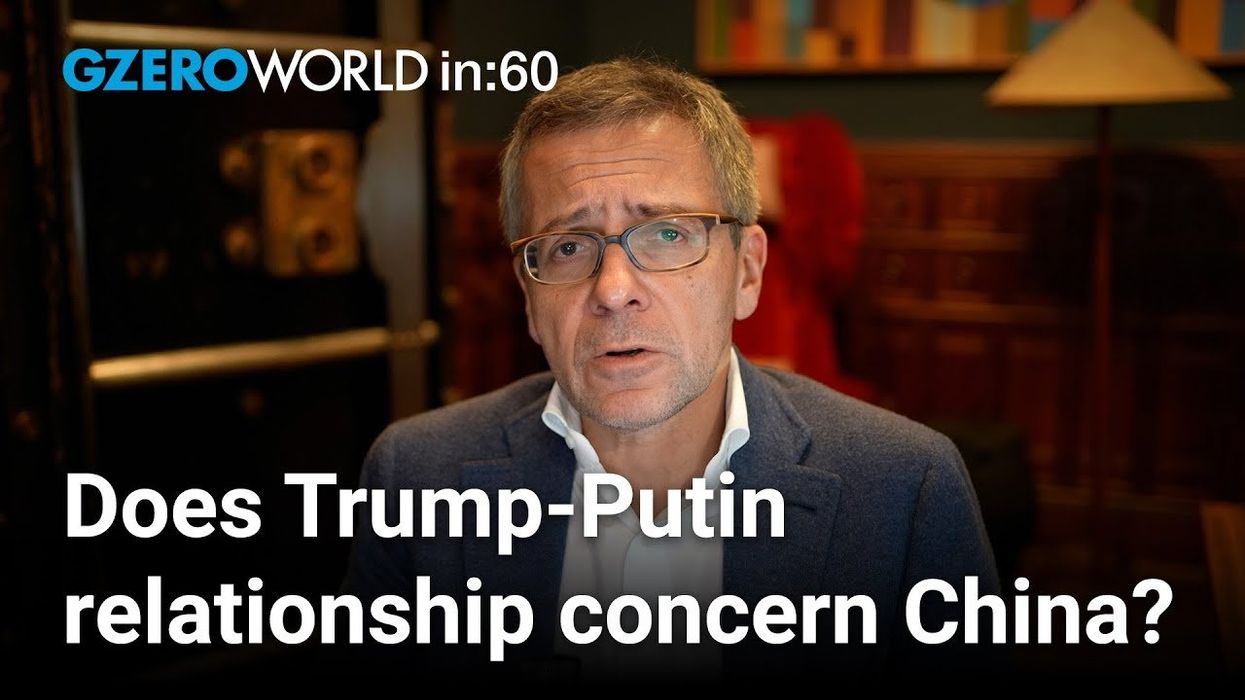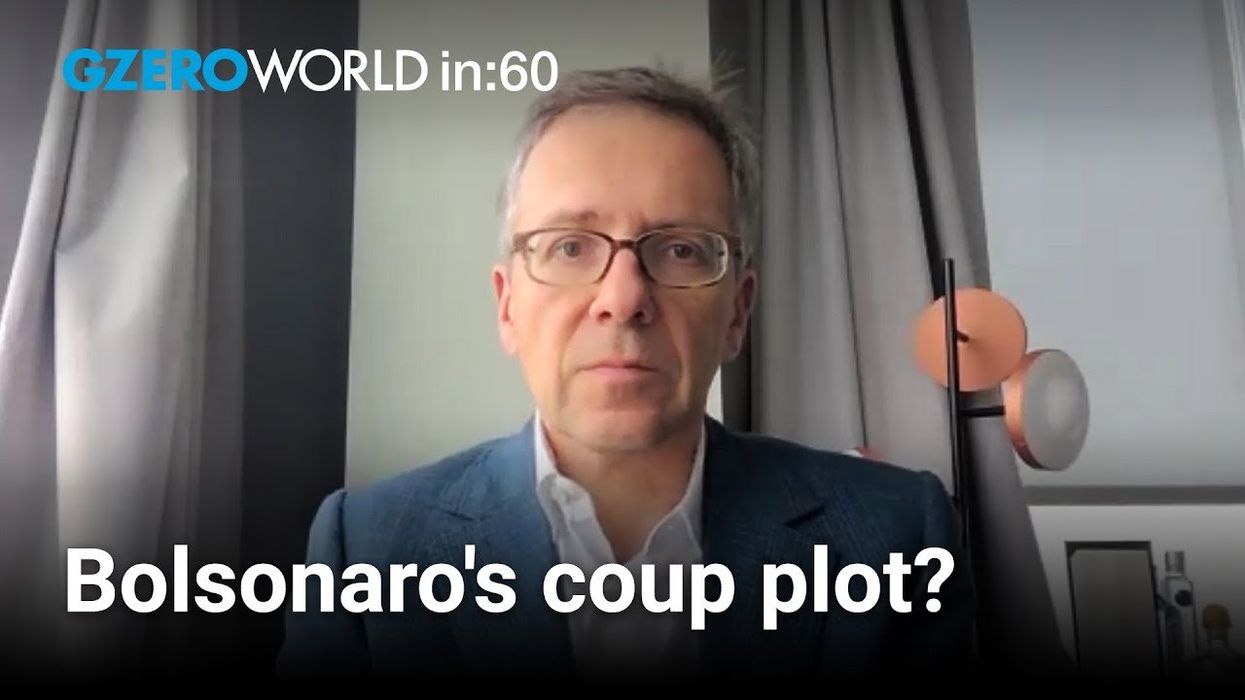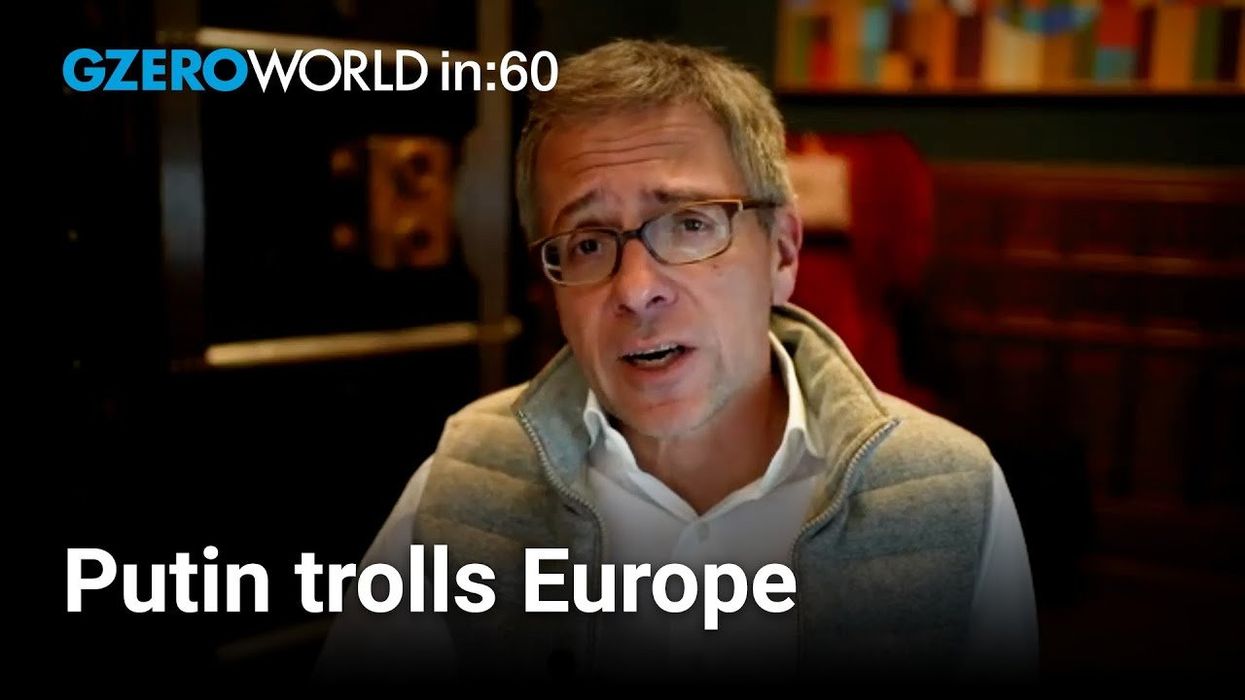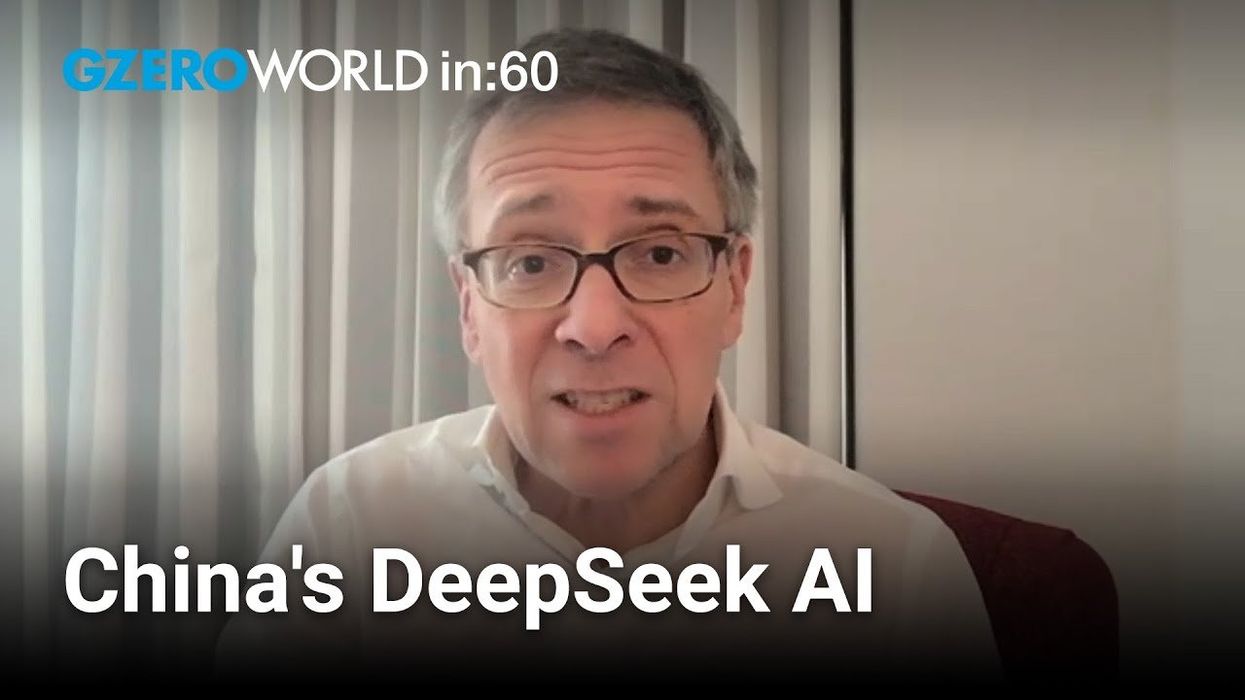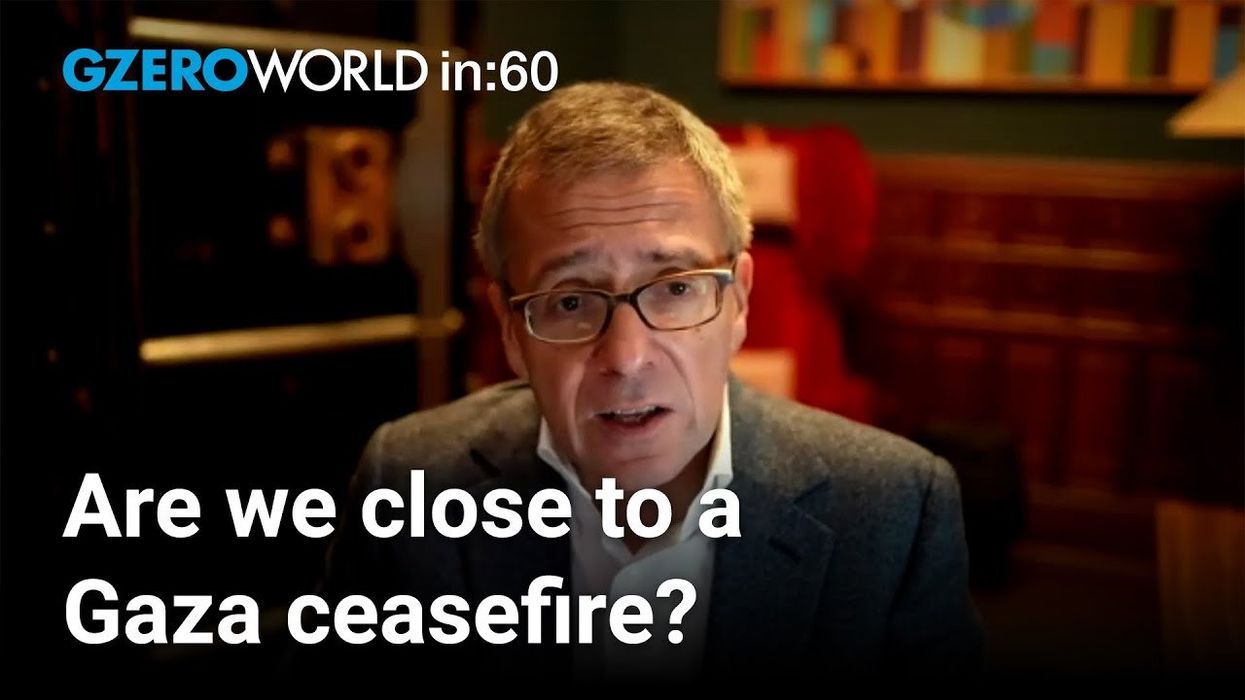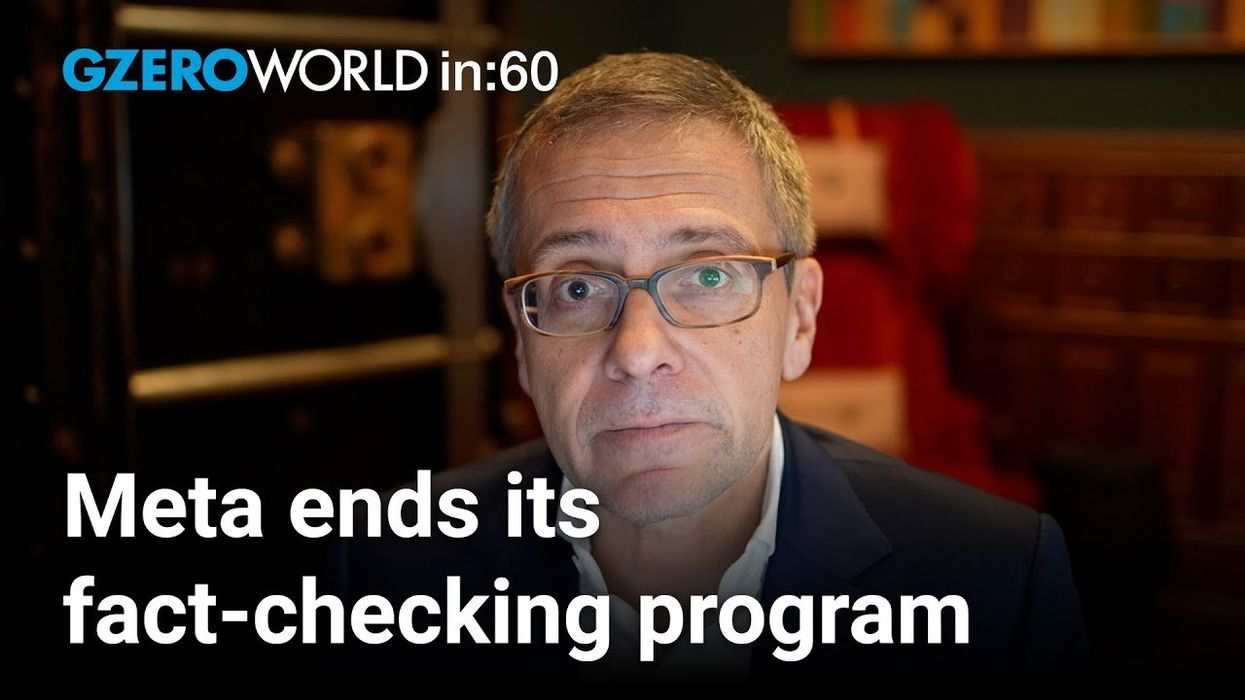VIDEOSGZERO World with Ian BremmerQuick TakePUPPET REGIMEIan ExplainsGZERO ReportsAsk IanGlobal Stage
Site Navigation
Search
Human content,
AI powered search.
Latest Stories
Start your day right!
Get latest updates and insights delivered to your inbox.
Ian Bremmer shares his insights on global politics this week on World In :60.
Why hasn't the United Nations insisted on military observers in Gaza?
Well, the United Nations doesn't really insist on things. And when they do, it's usually symbolic. Like they insist that humanitarian aid needs to get into Gaza and it doesn't happen. Or they insist that, there needs to be protections for the Palestinian civilians or that the Hamas needs to let go, release all of the illegally held hostages, and it doesn't go anywhere. So you can insist all you want. Also, keep in mind the Security Council would be vetoing that sort of thing because the US has a veto and they continue to use it on most Israel-Palestine related resolutions.
What specific demands are being voiced by campus protesters at institutions such as Columbia and Yale?
Well, I mean, the demands that got these protests started, are all about divestment of the endowments of these universities away from any corporations that do business in make money with Israel. Because of the view that the Israeli war in Gaza is wrong, the student protesters called it a genocide and that they want to end that. We've seen that kind of demand in Europe across the board. Not as much in the United States, at least not to this degree. Having said that, now that you also have students that have been suspended and arrested, surely the campus protesters are also saying those things need to be unwound. We're also increasingly seeing demands for university administrators, including presidents, to resign. So, I mean, the longer this goes, the harder it is to actually, accede to these student demands. And of course, the more polarized the environment on the ground in these universities become.
How will US aid package approval shake the dynamic of the Russia-Ukraine war?
Well, it makes it more likely that the Ukrainians can defend their front lines, at least for now. They had been losing some territory. Not a lot, but including one city. And the Russians are planning, with an additional mobilization, a new major offensive, probably end of spring, early summer. Ukrainians have a much better capability to hit back and stop the Russians from making gains there. They had been down to about 20% of the ammunition and artillery being fired against Russia, that the Russians were firing against Ukraine. This brings that back to parity through that offensive. What does this mean for 2025? Still, massive uncertainty and eventually a need to engage in negotiations with a much bigger Russia fighting an illegal war, an invasion with all these war crimes. Is that fair? No. But is that reality? Yes, absolutely. And any NATO leader you talk to privately recognizes that's where this is eventually going.
Keep reading...Show less
More from ask ian
Trump pulls US out of UNESCO, again
July 22, 2025
Trump announces new plan to arm Ukraine
July 15, 2025
Are NATO allies aligned on Iran?
June 24, 2025
Will Iran’s regime survive?
June 18, 2025
Trump-Musk rift over Trump's "big, beautiful bill"
June 04, 2025
What is Trump after in his latest Gulf states tour?
May 13, 2025
Why Mark Carney’s victory won’t heal the US-Canada rift
April 29, 2025
Trump tariff is starting a US-China trade war
April 08, 2025
What if Japan & South Korea sided with China on US tariffs?
April 01, 2025
US travel warnings issued by its closest allies
March 25, 2025
US-Canada trade war helps Mark Carney's election prospects
March 11, 2025
Why Trump won’t break the Putin-Xi alliance
March 04, 2025
Will Trump & Musk punish Brazil over Bolsonaro indictment?
February 19, 2025
Putin trolls Europe about "the master" Trump
February 04, 2025
DeepSeek puts US-China relations on edge
January 30, 2025
Gaza ceasefire likely as Biden and Trump both push
January 14, 2025
Meta scraps fact-checking program: What next?
January 07, 2025
GZERO Series
GZERO Daily: our free newsletter about global politics
Keep up with what’s going on around the world - and why it matters.

